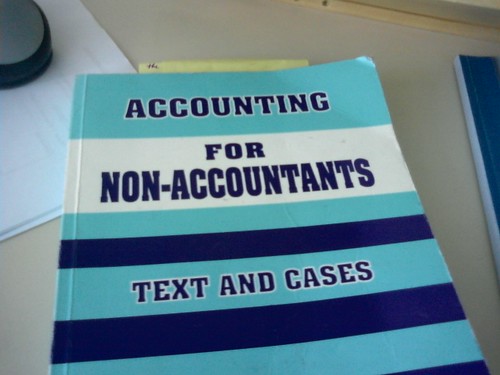African Americans when they speak, the spirit just takes over. These guys are just too too gifted.
Part three of How to Discover Your Mission in Life and Use It to Make Money
The rest of the series:
Today I will jump straight to it because I have a lot that I want to cover. If you haven’t, please read parts one and two of this series so that you can get up to speed on what’s going on.
There are three basic ways you can go about experimenting:
a) Gradually leaving your comfort zone.
b) Doing things that are the exact opposite of what you do.
c) The Nike Approaach: Just Do It -Letting your heart guide way and just trying whatever you feel like trying.
Gradually Leaving Your Comfort Zone

This one is for people who really have a hard time being flexible or creative or trying anything that is outside the usual rut. Just take one micro-mini-baby step EVERY DAY in a direction that you normally wouldn’t head in.
Let’s take the case of the accountant. Let’s assume that for some reason or the other he feels compelled to try out stand up comedy.
Step one might be to watch free stand up comedy videos on Youtube.
Step two would be to go to the bookstore and buy a short book of jokes and humour or the biography of a comedian he admires.
Step three would be to go to a comedy show and watch.
Step four would be to download jokes from the Internet and tell his friends and family a joke everyday……..
….slowly by slowly, by taking gradual DAILY STEPS ( I cannot emphasize enough that action must be taken daily) eventually he will be able to go to an open mic night and begin hanging around comedians and picking up tips from them. Then one sweet day he will pick up the mic. That day he may discover that he is the next Seinfeld or Richard Pryor or Churchill (the only man to tickle a crocodile to sleep, but do I say 🙂 ).
Trying the Exact Opposite of What You Would Do
For those who have never heard of Timothy Ferris, I cannot recommend his work highly enough. He is a genius. The story of Timothy Ferriss goes a little something like this. He started his own company and his company began to do well financially. In spite of the fact that he was earning $70,000 US Dollars a month he was miserable. He was working wwwaaaaaayyyyy more than 40 hours a week. His relationships were in shambles and he was many things, but happy wasn’t one of them.
In an attempt to ‘get happy’ he flew to London where he decided he would unwind and relax for a short while before returning to work. While there he decided he would do something that was entirely unlike his character: he would only check his email and work on his business one hour a week. This was so far outside his reality, he had a nervous breakdown.
This nervous breakdown however was to be the start of an absolute breaking point in his life. He spent the next year plus not just cutting down on the amount of work that he did but more importantly trying to build a life not centred around work. He actually began to live.The type of life that so many of us work so hard to achieve someday when the Holy Grail of retirement arrives.
He is now the author of the bestseller the Four Hour Workweek and is renowned worldwide for his crazy lifestyle experiments and achievements – including winning the Chinese National Kickboxing Championships, lecturing at Princeton University and getting a Guiness World Record for the Tango, all the while working four hours a week on a business that brings him enough to fund his lifestyle.

My advice to you would be to draw a circle. On one point in the circle draw a dot to represent yourself. Draw a line from that dot through the center of the circle to the opposite end of the circle. Ask yourself one question: Who would I find on the opposite end of this circle? If you are a physicist, it might be a gymnast because they work using their body whereas you work using your mind. It might be a quantum physicist because your area of expertise is nuclear physics. Whatever you perceive to be the opposite of your current field of occupation or current lifestyle, start by experimenting with that.
Now that leaves the rest of the circle. Gradually work your way round the circle starting from the opposite end and fill it up with things that are gradually similar to your current lifestyle or occupation. What is the second-most-opposite (you best believe that’s a word lol) activity or lifestyle choice to your current one, the third, the fourth, the fifth. Maybe the second-most-opposite (I’m sorry this word is just ridiculous) thing is chemistry, still intellectual but a very different area of empirical science. Maybe the third most opposite is psychology (can you imagine some loonies actually say that psychology isn’t a science; they are nothing but a bunch of passive aggressive sociopaths with madonna complexes) and on and on and on.
The circle should be looked at as a tool to ignite your creativity. Let your creative mind lead the way when finding opposites. There is no right or wrong answer. Whatever you feel is the opposite to your current lifestyle choice is good enough so long as it feels right to you. I know this concept may be a little difficult to grasp for some: If that’s you, please leave a comment below or email me at masmilele@thedisplacedafrican.com
Let Your Heart Guide the Way and Do Whatever You Feel like Trying

This was pretty much the approach that I took because I didn’t know any better. If you want to take this approach then the first thing that I would recommend is that you have a very strong, stable support base in terms of family, friends and money. That’s because this approach will take you to many dark places before you land in your area of flow. Make sure that for these dark times you have people around you who care for you and you have enough money or resources, or resourcefulness , to fall back on.
Under this approach you would basically wake up and do whatever you feel like doing. Again, be sensible i.e. don’t indulge in behavior that you know is destructive to you or your community.
In my case, I remember when I was in business school. One particular morning I had a lecture on God-knows-what. I got up, showered, dressed. Made the 1.5 hour commute. Got off the train and began to walk to RMIT University here in Melbourne. The closer I got to the building the more I felt the knots tighten at the back of my neck. I began to feel tears welling up in my eyes though I couldn’t cry. I had a problem holding my head up and I really felt like my body was having a mini-revolt. So I turned around, got back on the train back home and soon I was a college dropout. As soon as I got home I went online and began to study and listen to audios on success, history, politics, human anatomy etc etc. If you ask me what my agenda was for the last six months of 2005, I would have told you I had no idea. I would wake up and that’s the only plan I had. Some days I would go on line and study the diplomatic history of the United States. I had months where I was involved in theater groups and spent days on end rehearsing and going over the minutiae of making a character come to life . For one month I even got up and went to work as a door to door salesman, knocking on one door after the other trying to sell car servicing vouchers.
This one I would recommend for those young enough to not be entirely on their own or old and mature enough to have enough friends and enough stashed away to actually take some time to get in touch and figure out:
“If I did not have to follow anyone’s schedule: If I didn’t have to follow the world’s schedule, my employer’s schedule, my University’s schedule, my friend’s schedule. If the only schedule I had to follow was that of my mind, body, heart and soul, what would I do?”

Seriously, take some time and think about that right now, what would you do if you had all the money and time in the world? Answering that question alone may mean you may not even have to use the rest of this article.
Remember What You are Aiming For
What you are aiming for is a state of flow. Don’t judge it if the source of your flow is ‘weird’. There is a multinational firm that make their profits from building sand castles so whatever you think your limitations are: trust me, the chances are you haven’t even began to test them.
Approach Number 2: Become a Passionate Problem Solver
If there are any people that all societies tend to admire it is these people. We are talking about the Nelson Mandelas, the Steve Bikos and the Dedan Kimathis. These are those rare unique soles who find a problemin their community and do something very few people do. They don’t complain about it. They don’t try to find a scapegoat though they try to find the cause of the problem. They don’t look to anyone else to solve the problem. They get up, go out and decide that it’s up to them to solve the problem. Below are a couple of pointers on how perhaps you can join the ranks of these great people.

-
Understand That If You Do It for the Glory, You Probably Won’t Get It
These people very rarely did it for the glory. I hardly think that as Martin Luther King was marching through the streets getting stoned he was thinking: “ Yes, just give me thirty years and I know they will name a day after me for putting up with this mess.” Martin Luther King saw a problem. When the whole Rosa-get-your-behind-to-the-back-of-the-bus saga and the Alabama bus boycott came up, he was there. He stepped up with a dream in his mind, conviction in his heart and some divine intervention in his soul. Your objective must be the joy and happiness of the people whose problem your solving. You should derive your satisfaction from knowing that because you entered these people’s lives, they are now happier and rid of a problem that once ailed them.
-
Understand That Even Though You Deserve the Glory, 90% of the Time You Won’t Get It
One of the main reasons I am advising you to not chase after the glory is because when you commit yourself to serving other people, a lot of the time you don’t get it. First of all, Martin Luther King, Rosa Parks and Malcolm X were not the only people involved in the civil rights movement. There were hundreds upon hundreds of organizations that all fought for a more equitable American society. There were native American and hispanic civil right groups. Groups like the Rainbow Men, the Black Panthers, the Rainbow Coalition, John Lennon and his fans, the students of Berkley University just to name a few. Now for those of you who may be wondering, “Why don’t I know these people?” it’s because a lot of these people were shot, jailed or marginalized in one way or another.

In general people who dedicate themselves to serving their fellow man get crushed and used and abused. This gig takes courage and heart and that’s why we admire the Jesus Christs’ and the Patrice Lumumba’s of the world so much.
-
Find a place where human need and your skills and passions converge.
This is a tip for the sake of efficiency. Your desire to serve is admirable and absolutely fantastic. That having been said, do not serve in an area where you don’t have the skill or the passion to do a good job. Simple example: I am trained as an aged care nurse (yes, I am in charge of hygiene in regions I haven’t seen since my younger sister was a baby, get over it). However, Florence Nightingale, I am not. I am alright at having a conversation and connecting with people. But whenever I have to do any manual task, it bores me so much that I immediately escape into my mind where I plan, dream and create etc. Please read through the previous sections of this post and the previous post in the series to find tools you can use to discover your passions.
-
Make your goal A SOLUTION not just putting an end to the problem.
To put this one into a nutshell: Spend 20% of your time clearly defining what the problem is and then the other 80% of your time, energy and resources in creating a solution that is much larger and much more magnificent than the problem ever was. Remember the story of Timothy Ferriss: In retrospect, don’t you think he is a little glad that he had a nervous breakdown. Look to every problem as a phoenix that has just disintegrated into ashes. Your job is to revive a fiery phoenix from those ashes.

How to Do It
So how would you go about being a passionate problem solver. Look around at your community and try to find a problem that has yet to be solved sufficiently. Maybe like me you just wanted a place that is centered around understanding the African immigrant situation with all it’s unique problems and quirks and strengthening and encouraging African migrants all over the world. Maybe you are like Mama Mike who wanted to create a way of supporting the local community of Kenya on the Internet. Once you find a problem, no matter what the problem, if it affects a lot of people, it needs someone to solve it. Maybe that someone will be you.
Approach number 3
I thought I would post this one together with approach 2 because I have very little to say about it. I read about this approach from probably the largest personal development blog on Earth, www.stevepavlina.com. It struck me as quirky and unique enough to work powerfully. And Steve is the number one personal development blogger so he must be doing something right. Let me just quote straight from Steve Pavlina himself (Taken from the article: How to Discover Your Life Purpose In About 20 Minutes)

Here’s what to do:
-
Take out a blank sheet of paper or open up a word processor where you can type (I prefer the latter because it’s faster).
-
Write at the top, “What is my true purpose in life?”
-
Write an answer (any answer) that pops into your head. It doesn’t have to be a complete sentence. A short phrase is fine.
- Repeat step 3 until you write the answer that makes you cry. This is your purpose.
He goes into further detail on his site so please head on over to Steve’s website and read the rest of this powerful article. Then come right back for the next post in the series. I would be curious to see if this approach works across cultures or is just unique to the land of Caucasia. Personally I really have a hard time crying and I already found my flow using another approach and so I am really anxious to hear successes and failures that people may have with this approach.
I hope these tools are sufficient enough to help you discover your mission in life. Remember, reading this post without taking some form of action is futile. So please, take some action NOW and you might be surprised what your future may hold in store for you.
Be blessed and bless others,
Mwangi
Tags: life purpose, purpose driven life

[…] « How to Discover Your Mission in Life and Use It to Make Money (Series Introduction) How to Discover Your Mission in Life (Part two) […]
[…] Recommended Resources « How to Discover Your Mission in Life (Part two) […]